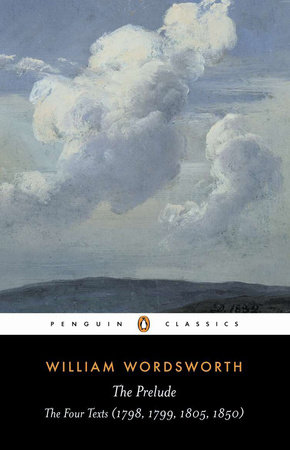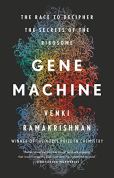I was more than a little pleased when I got an invitation from the Indian Institute of Science Education and Research, Mohanpur to deliver this year’s commencement address at their convocation on the 11th June. And more than a bit nervous. After the first set of my reactions had passed, and in the absence of my usual sounding board(s), I started worrying about what to say, what sort of pithy advice to serve up, what note to strike. In the end, here is what resulted, more or less…
[I’m leaving out the introductory salutations, etc. ]
Congratulations foremost, to all those who have been awarded degrees and medals today. This is an important marker, one that most of you would have worked hard to achieve. But then, for all of you, this will just be the beginning of the next chapter of your lives.

We live in interesting times. Some would say too interesting given that the pace of advancement in the sciences appears ever to accelerate, but still. In the past few months alone we have seen wonderful things – an image of a black hole, news of possible room-temperature superconductivity… and further back, gravitational waves, the Higgs boson, gene editing through CRISPR-Cas9, stem cells, cancer immunotherapy, treatments for Parkinson’s and Alzheimer’s, finding water on the moon, on Mars, AI, … any number of advances in all the different branches of science. The excitement is real, and for all of you graduating today particularly, these lines from Wordsworth apply so well,

“Bliss it was in that dawn to be alive,
But to be young was very Heaven! “
Bliss indeed to be alive in this age, and to be young! To be sure, there is so much happening in the world of science it is a very good time to be a young scientist. Many of you will choose a life in science. Some of you will have already committed to a life in research. Given your initial conditions, though, it is doubtless that science will, in some form or the other, be central to your way of thinking in your future. Even if your passions take you through different paths, what you have imbibed over the past few years will stay with you and shape your approach to life. There are so many discoveries to be made, so much more to learn… This is just the beginning.
A commitment to a scientific way of life is vital. You would have heard more than once that ours is the only country to have it enshrined in our Constitution that there is a need to have a scientific temper. A scientific temperament is a great asset, regardless of what one does, but doing science is of value. We have seen that our lives have, on average, been immeasurably improved by science, and more to the point, by an overall commitment to science. On occasion some people may profess otherwise, but the average Indian believes very strongly in the transformative power of science and technology.
The widespread support for the IITs and IISERs is part of this belief: we need to have more of you, more that can contribute to the development of science in the country. Your institute is young and very special, and that is a great advantage. The idea of your institute is also young, so it can rise to new challenges, and can adapt to the changes that these times require, with the agility that only the young possess.
My own academic career has been largely spent in a very different kind of institution – a central University, where the sciences had to learn to coexist with the humanities, language, and a range of other disciplines. There is some advantage in such an environment, not least of which is the respect one learns for very different modes of thought. Speaking from personal experience, the diversity that is inherent in such an institution is very instructive. Much of my own thinking about academia has been moulded by the uniqueness of that experience and the opportunities that it provided.
But to speak of change, and the challenges that changes bring. There is a saying that the more things change, the more they stay the same, but that was said long ago and in another tongue. In the past two decades (a period that spans the life of this institution) alone, the academic workplace has changed very fundamentally, both the laboratory, and the classroom. Part of this has been because of the way in which our country has evolved, but another and more important part has been because of the way in which our world has changed. The role of the teacher has changed drastically in the past few years mainly due to the internet, and the emphasis in educational institutions is slowly shifting, from the passing of examinations to the acquisition of skills.

How science is done today has slowly but surely changed with the changes in communication and increased mobility. Collaborative science has enabled the pursuit of bigger problems: the solitary scientist, working on an individual problem, is rare outside a few disciplines, and large multidisciplinary groups working on some ambitious projects, are the norm in others. Papers co-authored across national boundaries are commonplace, and those with over a thousand authors are not just confined to particle physics, these days one can even find them in biology!
But in other ways, we are connected in a manner that is global in its essence, and international institutions are fond of articulating grand challenges to highlight the global nature of several problems. Climate change is not restricted to a few nations. Global warming is not only real, it will affect all of us regardless of our individual carbon footprints. The damaged environment – pollution – affects all of us, rich and poor alike. Water scarcity will recognise no national boundaries…. Tackling such issues is going to require our collective efforts and our collective resources, and while we can anticipate that many of these problems will be addressed, the how and when is not clear, and it will need a multiplicity of institutions to show the way forward. Our graduates must be seen as part of a global cohort and must be prepared as such.
An institution such as IISER-K can play a leadership role in this context. Many of the problems can be addressed mainly through basic research that integrates both the natural sciences as well as the social sciences and the humanities, with each other and within themselves. And this needs to be done proactively; tomorrow cannot wait.

Speaking of which, are we still hidebound to a classic ideal, that of narrow categories of disciplines within which teaching happens? This needs to be debated since there really are no easy answers. What are the exciting areas of the future and what are the skills that students will need in order to tackle the important questions therein? Do we teach too much? And do we permit a student the option to explore what she or he may want to learn as opposed to what they are required to learn? The changing boundaries of subjects are kind only to those who are prepared and willing to take a plunge. A spectacular cross-disciplinarian of recent times, a Nobel laureate in Chemistry, had his degrees in physics and his work was in biology. More by accident than by design, perhaps, but we need more such happy accidents.
There are other changes that we need to recognise at the same time. The reality of the India of tomorrow and the changing demography needs to be addressed. India has the largest proportion of young people, those that need and want skills and learning. Increasing numbers of those seeking higher education will necessarily be first generation learners, and the manner in which our classrooms adapt to this change will determine how well we prepare ourselves for the future.
But today is mainly about those that are graduating, those on the brink of a new tomorrow. It is traditional in commencement addresses to give some meaningful advice, some inspiration…. let me do that by drawing from Cavafy’s great poem, Ithaka that captures so well the essence of the many journeys we undertake.
“When you set out for Ithaka
ask that your way be long,
full of adventure, full of instruction.
The Laistrygonians and the Cyclops,
angry Poseidon – do not fear them:
such as these you will never find
as long as your thought is lofty, as long as a rare
emotion touch your spirit and your body.
[…]
Ask that your way be long.
At many a Summer dawn to enter
with what gratitude, what joy –
ports seen for the first time
[…]
Have Ithaka always in your mind.
Your arrival there is what you are destined for.
But don’t in the least hurry the journey.
Better it last for years,
so that when you reach the island you are old,
rich with all you have gained on the way.
[…]
So do choose goals that are ambitious- ask questions for which the answers are worth knowing, and spend the time needed in order to resolve them. There will be distractions aplenty, and distractions everywhere. Disregard them.
Take it slow. The goal is the thing.

Maakasih banyak mas, adanya info ini membantu saya dalam
melakukan kegiatan. Tidwk hanya itu saja banyak juga manfaat yang saya
temukan lainnya disini.